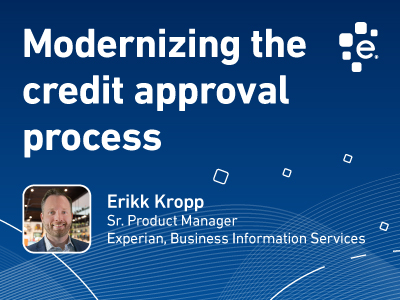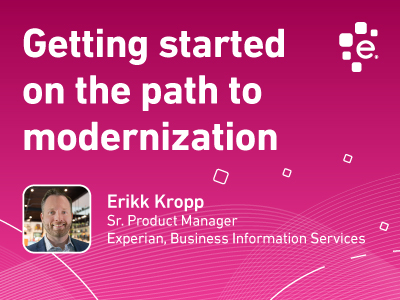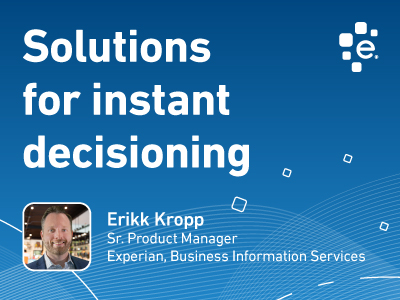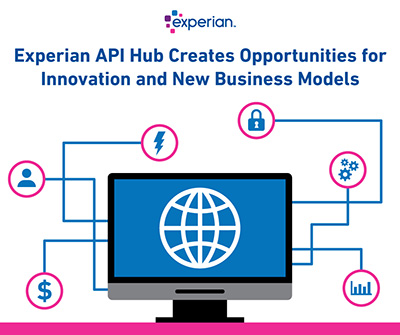The Path to Modernization Framework
To complete our five-part series on the Path to Modernization framework, Erikk Kropp, Senior Product Manager at Experian, discusses APIs and external data sources and how they can increase productivity and efficiency with credit teams.
Many commercial reporting agencies offer hosted websites for clients. These websites provide convenient access to various services, from credit reports to credit scores. Clients typically receive user IDs and passwords to log in and access the necessary information.
However, there is a growing trend among businesses to integrate external data into their systems, leveraging it to enhance their unique processes and automate various workflows. This approach offers significant advantages over using standalone websites, especially in terms of efficiency and customization.
Integrating Data with APIs
A prime example of this trend can be seen in the use of APIs (Application Programming Interfaces). APIs allow businesses to import data from external sources into their internal systems, such as customer relationship management (CRM) software like Salesforce or enterprise resource planning (ERP) systems. This capability is particularly valuable for portfolio management, where companies manage risk across a broad client base.
Businesses can enrich their existing information and streamline their workflows by integrating data via APIs. This integration eliminates the need for separate login credentials and makes the data readily accessible within the company’s existing processes. Moreover, it enables further automation, connecting various in-house systems to enhance overall functionality.
Advantages of In-House Data Integration
The primary benefit of bringing data in-house through APIs is the seamless integration into existing workflows. This integration allows businesses to append new data to their current datasets, improving data accuracy and usability. Additionally, it supports automation, reducing manual intervention and increasing operational efficiency.
Another significant advantage is connecting imported data to other automated processes within the company’s software ecosystem. This connectivity facilitates more sophisticated workflows and enhances the capability to respond to business needs promptly and effectively.
Implementing Segmentation Strategies
Beyond risk management, integrating external data enables businesses to deploy advanced segmentation strategies. Companies can segment their client base by combining imported data with internal information to identify risks and opportunities. This segmentation can reveal the potential for upselling or cross-selling, contributing to revenue growth rather than focusing on risk mitigation.
Segmentation strategies can help businesses better understand their clients, identifying areas for improvement and opportunities for growth. This comprehensive view of client data supports informed decision-making and strategic planning.
The trend towards integrating external data via APIs is reshaping how businesses manage and utilize information. By bringing data in-house, companies can streamline their workflows, automate processes, and implement advanced risk management and growth strategies. This approach enhances efficiency and provides a competitive edge in today’s data-driven business environment.
Businesses looking to stay ahead should consider the potential of API integration and explore how it can transform their data management and operational processes.





